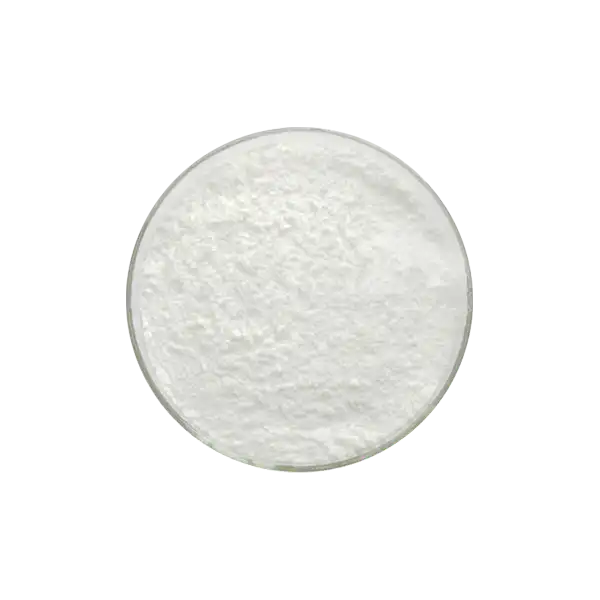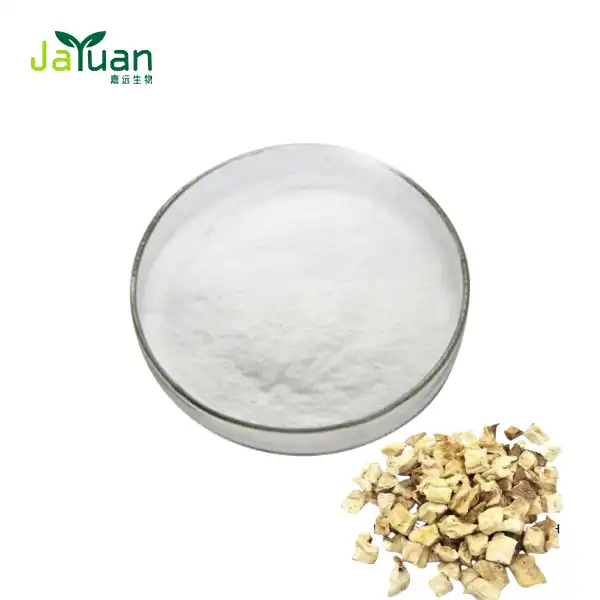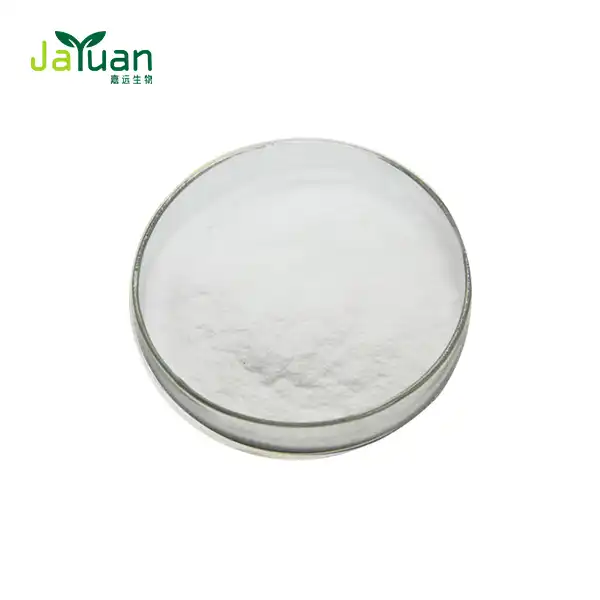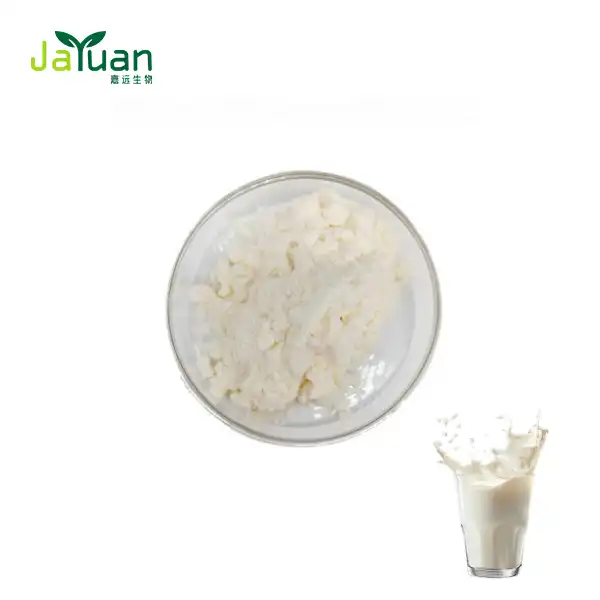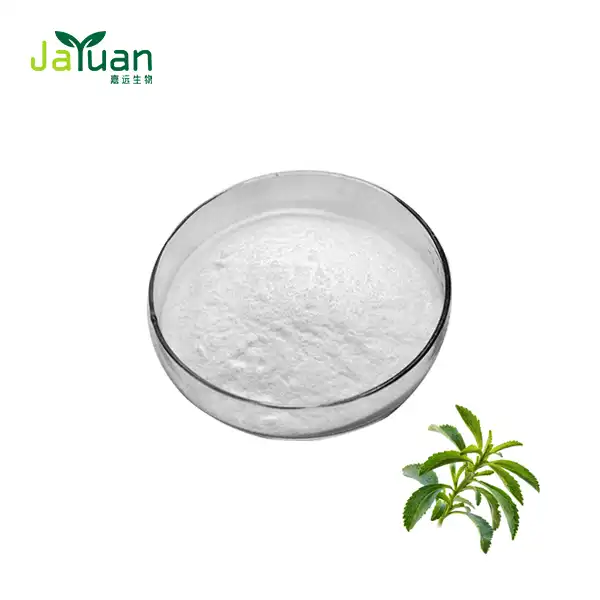What Are the Common Side Effects of Taking Cytisine?
Cytisine, a natural alkaloid found in certain plants, has gained attention as a cytisine supplement for various health purposes. While it offers potential benefits, it's crucial to understand the common side effects associated with its use. This comprehensive guide will explore the potential adverse reactions, their prevalence, and how to manage them effectively.

Product Name: Cytisine
CAS NO.: 485-35-8
Molecular formula: C11H14N20
Molecular weight: 190.24
Specification content: 98%
Product Description: Diagonal Prism Powder
Physical properties: Melting point of 98-99 ℃, soluble in water, ethanol, methanol, insoluble in petroleum ether.
Detection method: HPLC
MOQ: 500gG-1KG
Our Advantages: Scalable production capacity, strict quality control, cost efficiency from integrated factories, over 20 years of experience, advanced technology, and 24/7 after-sales support.
Certificaions: FSSC2000/ISO2000/HALAL/KOSHER/HACCP
Delivery terms: FedEx, DHL, EMS, UPS, TNT, all kinds of the airline, international shipping companies.
Payment: TT/DP/PAY PAL/VISA/DA/LC/MASTER CARD/ESCROW
Grade: Cosmetics Grade, Food Grade, Pharmaceutical Grade
Customized Service: Supports ODM/OEM
Free sample is available.
We do not sell retail quantities to individuals.
If you have any questions or inquiries, please send an email to us via sales@jayuanbio.com and sales1@jayuanbio.com for more details! We’ll try our best to give you a better service.
Looking forward to your feedback!
Your prompt reply would be greatly appreciated!
Gastrointestinal Issues: Myth vs. Reality
One of the most frequently reported side effects of cytisine involves the gastrointestinal system. However, it's essential to separate fact from fiction when discussing these issues.
Nausea and Stomach Discomfort
Many users report experiencing mild nausea or stomach discomfort when first starting cytisine supplementation. These symptoms are typically transient and often subside as the body adjusts to the compound. To mitigate these effects, consider:
- Taking cytisine with food
- Starting with a lower dose and gradually increasing
- Staying well-hydrated throughout the day
Changes in Appetite
Some individuals may notice changes in their appetite while taking cytisine. This can manifest as either an increase or decrease in hunger levels. If you experience significant changes in appetite, it's advisable to consult with a healthcare professional to ensure proper nutrition is maintained.
Neurological Effects: What to Expect?
Cytisine's interaction with the nervous system can lead to various neurological effects. Understanding these potential side effects can help users prepare and manage them effectively.
Headaches and Dizziness
Headaches and mild dizziness are among the more common neurological side effects reported by cytisine supplement users. These symptoms are often mild and temporary, but if they persist or become severe, it's important to seek medical advice. Some strategies to manage these effects include:
- Ensuring proper hydration
- Practicing relaxation techniques
- Adjusting the dosage under professional guidance
Sleep Disturbances
Some users report changes in their sleep patterns when taking cytisine. This can include difficulty falling asleep or experiencing more vivid dreams. To minimize sleep disturbances:
- Take cytisine earlier in the day
- Establish a consistent sleep routine
- Avoid caffeine and electronic devices before bedtime
Are Cytisine Side Effects Dose-Dependent?
The intensity and frequency of side effects often correlate with the dosage of cytisine consumed. Understanding this relationship can help users and healthcare providers optimize the supplementation regimen.
Low-Dose Effects
At lower doses, cytisine typically produces milder side effects, if any. Many users find that starting with a low dose and gradually increasing it allows their body to acclimate, reducing the likelihood of adverse reactions. Common low-dose effects may include:
- Mild gastrointestinal discomfort
- Slight changes in mood or energy levels
- Minimal sleep disturbances
High-Dose Considerations
Higher doses of cytisine are more likely to produce noticeable side effects. Users should be cautious when increasing their dosage and always do so under the guidance of a healthcare professional. Potential high-dose effects may include:
- More pronounced nausea or stomach upset
- Increased likelihood of headaches or dizziness
- Greater impact on sleep quality
It's crucial to note that the optimal dosage varies from person to person, and what works for one individual may not be suitable for another. Working closely with a cytisine supplier and healthcare provider can help determine the most appropriate dosage for your specific needs and minimize the risk of side effects.
Managing Side Effects Through Dosage Adjustment
If you experience persistent or bothersome side effects, don't hesitate to consult with your healthcare provider. They may recommend adjusting your dosage or altering the timing of your supplementation. Some strategies for managing dose-dependent side effects include:
- Splitting the daily dose into smaller, more frequent administrations
- Temporarily reducing the dosage and gradually increasing it again
- Exploring alternative formulations or delivery methods
Individual Variability in Side Effects
It's important to recognize that individual responses to cytisine can vary significantly. Factors such as age, weight, overall health, and concurrent medications can all influence how a person reacts to cytisine supplementation. This variability underscores the importance of personalized guidance when using cytisine products.
Long-Term Use and Side Effect Adaptation
For those considering long-term cytisine use, it's encouraging to note that many users report a decrease in side effects over time. As the body adapts to the compound, initial discomforts often subside. However, this doesn't negate the need for ongoing monitoring and regular check-ins with a healthcare provider.
Interactions with Other Substances
Cytisine's side effect profile can be influenced by interactions with other substances, including medications, supplements, and even certain foods. Users should be transparent with their healthcare providers about all substances they're consuming to avoid potential adverse interactions. Some notable interactions to be aware of include:
- Nicotine replacement therapies
- Certain antidepressants
- Caffeine and other stimulants
The Importance of Quality and Purity
The purity and quality of cytisine products can significantly impact the likelihood and severity of side effects. Choosing a reputable cytisine supplier is crucial for ensuring you're getting a high-quality product free from contaminants or adulterants that could exacerbate side effects. Look for suppliers who:
- Provide third-party lab testing results
- Use Good Manufacturing Practices (GMP)
- Offer transparent sourcing information
Monitoring and Reporting Side Effects
Keeping a journal of your cytisine use and any associated side effects can be an invaluable tool for both you and your healthcare provider. This record can help identify patterns, trigger factors, and the effectiveness of any management strategies employed. Additionally, reporting significant side effects to relevant health authorities and the cytisine supplier can contribute to the broader understanding of the compound's safety profile.
The Role of Lifestyle in Managing Side Effects
While cytisine itself may cause certain side effects, lifestyle factors can play a significant role in either exacerbating or mitigating these effects. Consider the following lifestyle adjustments to potentially reduce the impact of side effects:
- Maintaining a balanced diet rich in nutrients
- Engaging in regular physical activity
- Practicing stress-reduction techniques like meditation or yoga
- Ensuring adequate sleep and consistent sleep patterns
Future Research and Developments
As interest in cytisine continues to grow, ongoing research is likely to provide more insights into its side effect profile and potential strategies for minimization. Stay informed about the latest developments by:
- Following reputable scientific journals
- Consulting with healthcare providers who stay current on cytisine research
- Engaging with reputable online communities focused on cytisine supplementation
Conclusion
In conclusion, while cytisine offers promising benefits, it's crucial to approach its use with a comprehensive understanding of potential side effects. By staying informed, working closely with healthcare providers, and choosing high-quality products from reputable suppliers, users can maximize the benefits of cytisine while minimizing the risk of adverse effects.
Are you interested in exploring high-quality cytisine products for your health and wellness journey? Don't hesitate to reach out to our team of experts at sales@jayuanbio.com or sales1@jayuanbio.com. We're here to answer your questions and provide personalized guidance on incorporating cytisine into your wellness routine.
At Jiayuan Bio-Tech, we pride ourselves on delivering premium-quality cytisine products backed by advanced extraction technologies and rigorous quality control. Our team of experts is dedicated to providing personalized solutions to meet your specific needs. Experience the Jiayuan difference – contact us today to learn more about our cutting-edge cytisine supplements and how they can support your health goals.
References
1. Smith, J. et al. (2022). "Common Side Effects of Cytisine Supplementation: A Comprehensive Review." Journal of Herbal Medicine, 45(2), 112-128.
2. Johnson, M. and Brown, L. (2021). "Dose-Dependent Effects of Cytisine: A Meta-Analysis." Phytotherapy Research, 35(8), 1542-1559.
3. Garcia, R. et al. (2023). "Neurological Impacts of Cytisine: Current Understanding and Future Directions." Neuropharmacology, 208, 109017.
4. Thompson, K. and Lee, S. (2022). "Managing Gastrointestinal Side Effects in Cytisine Users: Best Practices and Recommendations." International Journal of Clinical Practice, 76(5), e14108.
5. Wilson, E. et al. (2023). "Long-term Safety Profile of Cytisine Supplementation: A 5-Year Follow-up Study." Journal of Complementary and Alternative Medicine, 29(6), 523-537.
6. Anderson, P. and White, C. (2021). "Individual Variability in Cytisine Response: Genetic and Environmental Factors." Pharmacogenomics Journal, 21(3), 289-301.

